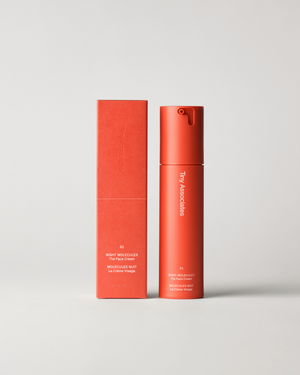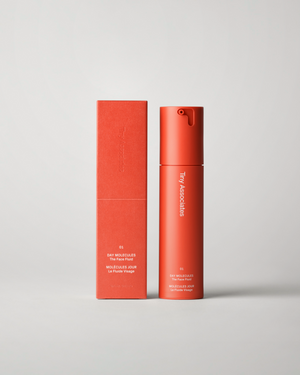

Ushering in a new generation of luxury and sustainable skincare essentials.
In our resource-constrained world, we are overdue for a sustainable alternative to natural ingredients. The farming of natural ingredients for use in skincare puts increasing pressure on limited natural resources, with ingredients being pulled from the earth on an industrial scale and leaving a significant carbon footprint behind. The time is now for embracing a new natural.
Sustainably brewed natural molecules is the answer to the new natural that we need for our skincare essentials.

How can brewed natural ingredients be more sustainable?
There are only a finite amount of resources on the planet from which we can source skincare ingredients. This isn’t sustainable, especially on an industrial scale. Pulling ingredients from the earth requires land, water, energy, sunlight and labor, which often overtaxes those natural resources, not to mention the significant carbon footprint that stems from lengthy global supply chains.
On the other hand, sustainably brewed natural molecules made with renewable inputs allows us to source raw materials without many of the negative impacts resulting from sourcing nature-derived ingredients.
These ingredients are the same as the ones found in nature?
Yes, they can be identical. And they are typically better for the skin. As the supply chain can be better controlled, impurities can be prevented and potency becomes more stable.
Sustainably brewed ingredients are identical to those found in nature, but more sustainable and more effective?
Yes, bio-scientists have discovered ways to do exactly this. Biotechnology is driving sustainable efforts in other industries too, such as in fashion and food.
Can you provide an example of this?
A good example of a sustainably brewed natural molecule is bio-based bisabolol. A natural calming ingredient used in skincare, bisabolol is traditionally extracted from the candeia tree. However, to collect 7 kg of bisabolol, one needs a whole tonne of plant material from candeia trees, which take around 10 years to grow.
In contrast, it is now possible to obtain bisabolol through biotechnology. The yeast is raised on sugarcane, which renews within around one year and requires 230 times less agricultural land to produce the same amount of bisabolol as the endangered candeia tree, making it a much more sustainable ingredient.
Related products

